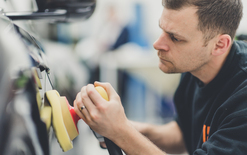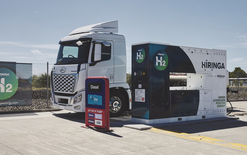EV owners find new conveniences
EV owners have found new conveniences in their battery powered cars. A report just released that surveyed EV owners from across New Zealand, show that nearly all prefer to avoid the petrol station, opting to charge their vehicles at home. The report by Flip the Fleet, an EV user lead science group, shows that 92 per cent of EV users prefer to charge from home. Sigurd Magnusson, from the Wellington EV Owners Group says that avoiding the queues, fumes and temptations of junk food at petrol stations makes driving a much more pleasant experience. “EV owners particularly enjoy not having to interrupt their drive home or make a special trip to the petrol station,” Magnusson said. Flip the Fleet also highlight the savings in transportation costs that owning an EV brings. 35 per cent of the EVs being monitored by the Flip the Fleet project charge between 11pm and 7am, when electricity costs are lower. “That’s also better for New Zealand – we need to reduce the amount of coal and gas used to make electricity,” said Magnusson. In terms of the equipment needed, the report says 40 per cent of EV users charge their cars using standard household plugs. 43 per cent have installed higher capacity plugs (normally used for powering caravans), that charge the vehicles faster. The remaining 17 percent have invested in built-for-purpose wall mounted charging equipment in their homes. Autofile reported last week that Bloomberg predicts battery electric vehicles (EV) will make up the majority of EV sales after 2030, mostly replacing plug-in hybrid electric vehicles (PHEV). This is currently the case in New Zealand, with EVs making up around 78% of total light EV and PHEV registrations. The total New Zealand EV fleet sits at about 4,200 cars. Established in June 2016, the Flip the Fleet project aims to gather data on EV use, increase the availability of information for owners and counter misconceptions about EVs. The group is partly funded by the Ministry for Business Innovation and Employment and the private consultancy group Ecosystems Consultants.





